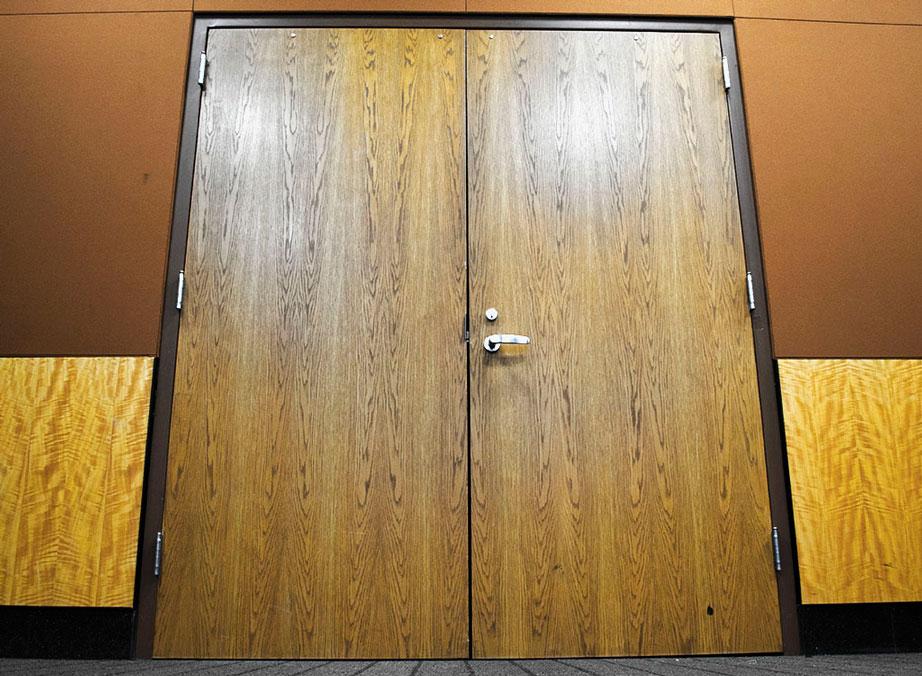The editorial was unanimously approved by the editorial board.
We, as members of The Appalachian’s editorial board and students of Appalachian State University, request an open search for the university’s next chancellor.
We ask the search committee for the new chancellor to reconsider the decision for a closed search as the pool of applicants is narrowed. It is this board’s stance that public figures as prominent as the head of a state-funded university should not be selected and appointed behind closed doors.
The search committee voted Oct. 15 to hold a closed, or “confidential,” search for the next leader, manager and face of Appalachian State University – a public institution – according to an article from University News. The decision comes with the idea that a confidential search will draw highly qualified candidates from their current leadership roles.
We believe this decision is the wrong way to go about looking for this university’s next chancellor. The next chancellor should have a chance to see this university and meet students, faculty and staff prior to UNC system President Tom Ross’ final decision.
We do understand, to an extent, why the search is being carried out the way it is. It could cause a problem for word to get out that a candidate from another university is looking to leave his or her current post for Boone.
But ultimately, the need for an open search outweighs the possible negative outcomes an open search could bring.
We’re not alone
Universities, both public and private, across the nation have conducted closed searches for chancellors or presidents, according to an article in the fall 2013 Student Press Law Center Report.
Many search committees and hired consultants for searches believe the privacy of a closed search will bring more candidates in confidence that word will not get out that they plan to leave their current job. The University of Wyoming, Louisiana State University, Northern Illinois University and others have completed closed searches for their next leader that resulted in legal action, media criticism and a premature resignation.
We disagree with this notion of privacy for the possibility of the aforementioned cases and for the potential good an open search could have. Word getting out would tell the search committee more about the candidate than they expected – for better or worse.
Out of these candidates we may never see, one of them will take the helm of Appalachian. They will be the voice for the university in Boone, in Chapel Hill and across the state.
The search that led to Chancellor Kenneth Peacock was open, and it seemed to work well 10 years ago. Why can’t we see that again?
We have an alternative
We don’t ask that the search committee reveal every single candidate for the chancellor position. Instead, we believe that when the committee has trimmed the list of candidates to a final three candidates – or some comparable shortlist – they should let members of the university meet them.
Searches for faculty and other similar positions on campus are often open and these candidates are able to meet people they would work with in many and varied departments and areas across campus.
We cannot see a truly valid reason that the search for an administrative position as important as chancellor should be kept quiet from the campus and community, especially at a public, state-funded institution.
The discussion panels that have been held for students and faculty through the search committee allowed one-way communication as a way for those groups to voice concerns and opinions in hopes the committee will take them into consideration. Emails were sent out to students during winter break that included a link for them to give more feedback for the committee – and feedback was due Jan. 2.
But those compromises fall short of the standard of transparency we truly need for a new chancellor at a prominent and influential institution of higher learning.
We can set an example
We realize the committee will more than likely continue on the path they have chosen. As we publicly and openly urge them to keep the final candidates out of the dark with no assurance that they will take this into consideration, we stick by our stance.
These closed searches are nothing new, and universities across the nation will continue to conduct searches in confidential arrangements, both at private and public institutions, for reasons they believe are most beneficial to everyone.
We hope that not only the students, faculty and community affected by university leaders of Appalachian will share our view, but that the same groups at other institutions will do the same. This trend will continue as long as search committees and consultants feel assured and safe that it can.
For the sake of the faculty, staff, students, alumni and community, we ask the search committee to reconsider its lack of transparency and open the search when the final candidates have been selected.
With all of that in mind, why should these names be kept from us? This person will one day be an open and public figure to us all, so why usher them into Appalachian in secrecy?

